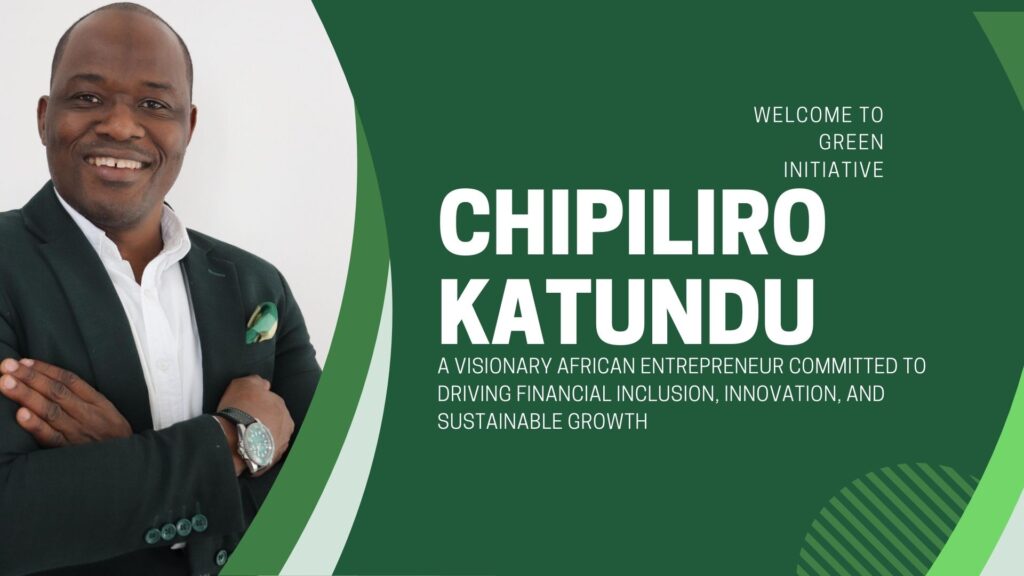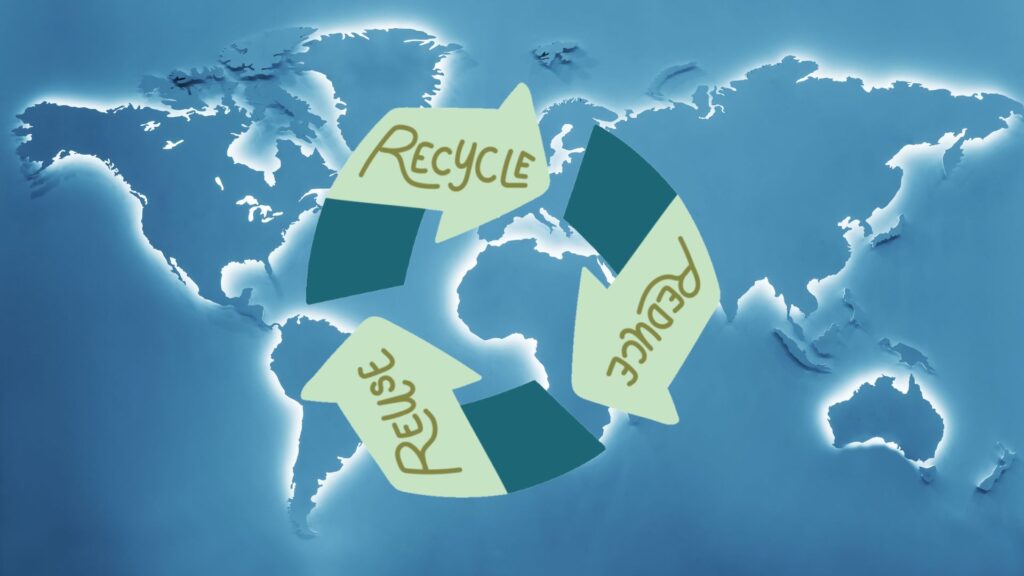Green Initiative Welcomes Chipiliro Katundu as Director of Climate Finance for East and Southern Africa
At Green Initiative, we believe that advancing a climate and nature positive future requires bold leadership, innovative finance, and deep local engagement. That is why we are proud to welcome Chipiliro Katundu as our new Director of Climate Finance for East and Southern Africa. A Visionary African Entrepreneur With more than 20 years of transformative leadership across the financial sector, Chipiliro has dedicated his career to advancing financial inclusion, innovation, and sustainable growth throughout Africa. He has served as a Bank CEO, held senior leadership roles across multiple countries, and contributed his expertise on bank boards, always driving strategies that expand opportunities for businesses and communities. His career reflects a powerful vision: building financial systems that not only deliver growth but also foster resilience and sustainability in a rapidly changing world. Innovation for Resilient Supply Chains As the Founder of Gigatt, a supply chain technology company, Chipiliro has pioneered solutions that help corporates and banks enhance efficiency, unlock liquidity, and promote sustainability. His work demonstrates how technology and finance can intersect to create resilient ecosystems, ensuring that businesses thrive while contributing to broader climate and social goals. This combination of finance, innovation, and sustainability uniquely positions him to lead climate finance strategies that will strengthen communities and unlock green opportunities across Africa. Driving Climate Finance in Africa In his role at Green Initiative, Chipiliro will focus on expanding access to climate finance solutions across East and Southern Africa. His mission is to empower local communities, SMEs, businesses, and governments with the resources and partnerships they need to accelerate climate resilience and inclusive green growth. Interview with Chipiliro Katundu To better understand his vision, we asked Chipiliro to share his insights on the future of climate finance in Africa: Africa is on the frontline of climate change, but we are also the frontier of climate solutions. We contribute less than 4% of global emissions, yet we bear the brunt of the impact. That challenge gives us a unique responsibility — and an unprecedented opportunity. With the youngest population on earth and vast renewable resources, Africa can leapfrog into inclusive, profitable green growth. But it will take bold partnerships. Corporates must rewire supply chains for sustainability, investing in clean energy, green logistics, and resilient communities. Financial institutions must channel capital into climate-smart SMEs and innovative projects, unlocking liquidity where it matters most. When business and finance align with Africa’s ingenuity, we don’t just solve today’s challenges — we design tomorrow’s economy. We create millions of green jobs, pioneer the industries of the future, and build resilience that strengthens not just Africa, but the entire planet. Africa’s role is not to follow — it is to lead, and to prove that the future of growth is green, inclusive, and African-led. For me, climate finance is not just about carbon — it is about competitiveness, resilience, and growth. SMEs are the backbone of Africa’s economies, but they are also the most vulnerable to climate shocks and the hardest hit by lack of liquidity. If we rethink the system, corporates can rewire supply chains by demanding and investing in sustainable practices — from clean energy in production to green logistics and resilient sourcing. At the same time, financial institutions must go beyond traditional lending and channel capital into climate-smart SMEs and innovative projects. That means unlocking liquidity where it matters most — in the small businesses creating jobs, innovating new solutions, and building stronger communities. When climate finance flows into SMEs, it does two things: it accelerates inclusive green growth today, and it lays the foundation for Africa to leapfrog into the sustainable industries of tomorrow. Looking Ahead Chipiliro’s appointment marks a significant step in Green Initiative’s expansion in Africa. By combining financial expertise, digital innovation, and a strong commitment to sustainability, he will play a key role in mobilizing resources that drive climate-positive transformation across the continent. We are honored to have Chipiliro join our leadership team — and excited about the impact his vision will bring to our shared global mission. The Green Initiative Team




